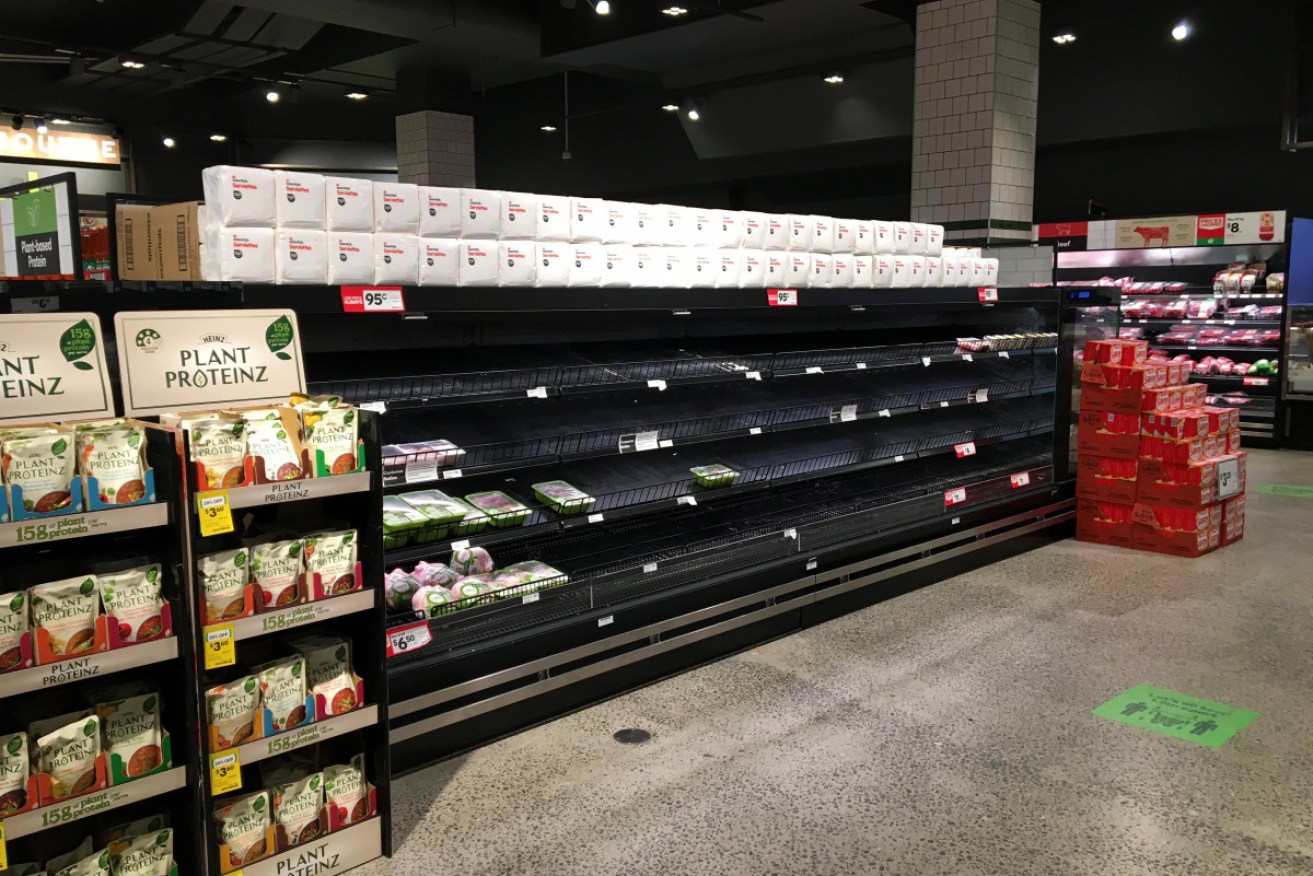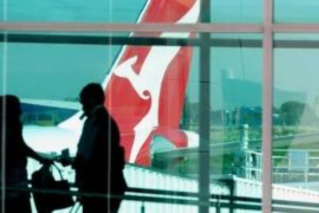Grocery prices to spike as border closures bite


An empty poultry cabinet at a Melbourne supermarket ahead of the city's COVID shutdown. Photo: AAP
Consumers might soon feel the effect of Australia’s closed state borders in their hip pockets, as supermarket prices rise.
Agriculture Minister David Littleproud said state border closures had had serious unintended consequences on agricultural supply chains and the wellbeing of regional Australians.
“The practical application of some of the arbitrary closures means that supply chains can be interrupted,” Mr Littleproud said on Friday.
Among those whose healthcare has been affected, he said cancer patients in Tenterfield have been unable to access treatment in Queensland and a heavily pregnant woman in Moree has been declined a permit to visit Toowoomba to visit her obstetrician.
In an email to customers on Friday, Woolworths chief executive Brad Banducci said the Victoria’s tighter virus measures had hit meat and poultry supplies.
The company was using its national network “to smooth out supply”, and hoped stock levels would improve by the weekend.
Elsewhere, agricultural impacts of closed borders across Australia include a Victorian pastoralist who has been unable to get to Broken Hill to feed and water her 500 cattle, and the flow of silage contractors and grain harvesters grinding to a halt between Queensland and NSW.
“State health officials need to engage specifically with regional communities and industries at the direction of the premiers to identify workable solutions that keep supply chains open,” Mr Littleproud said on Friday.
“Keeping all of our agricultural supply chains secure is absolutely critical to ensuring supermarket prices for fresh products remains affordable for Australians, while maintaining some of the best animal welfare standards in the world.”

NSW Police officers patrol the Victorian border in Albury.
Last week, as Melbourne began its six-week strict shutdown of all but essential businesses, industry experts warned the move might also mean food shortages elsewhere in Australia.
Most Victorian abattoirs are restricted to two-thirds of production during the shutdown (poultry processors can work at 80 per cent).
Australian Meat Industry Council chief executive Patrick Hutchinson said shortages of meat were all but certain, with fewer people working to process it.
Also on Friday, Tourism Minister Simon Birmingham said travel restrictions should be proportionate to the risks of coronavirus in different states.
He urged Australians to travel if they could, to help the domestic tourism industry, which has taken a $12 billion hit.
“That’s shocking news for so many small and medium businesses around Australia,” Senator Birmingham told the ABC.
“Get out there and pretend that you’re overseas and do the types of things you would do overseas whilst travelling around Australia.”
Senator Birmingham said he had not given up hope of a travel bubble with New Zealand by the end of 2020 – despite NZ Prime Minister Jacinda Ardern ruling it out, even before the country’s own COVID outbreak this week.
“I don’t think anybody should expect there will be a breakthrough in the next few weeks or couple of months,” he told Sky News.
“As we get closer to the Christmas period the calls for many people to be able to connect with family and loved ones will get greater.
“If it can be done with the concurrence of both countries we would love to see that breakthrough.”
-with AAP








